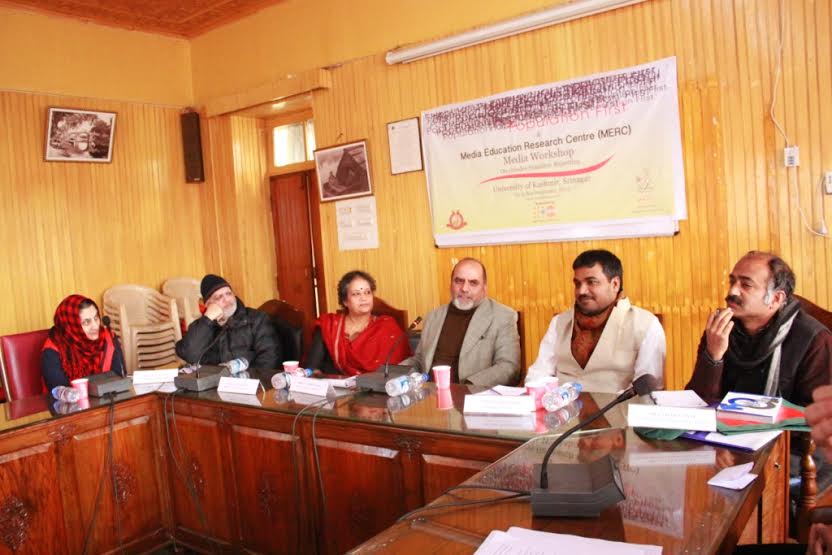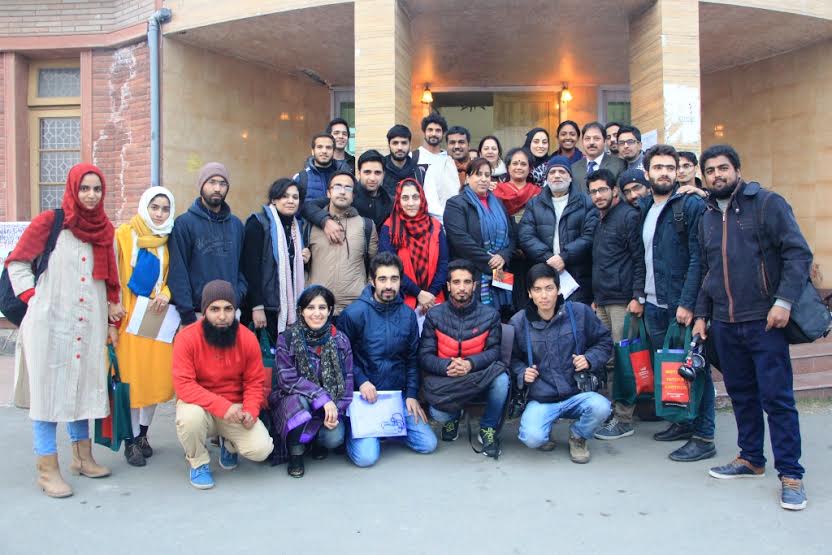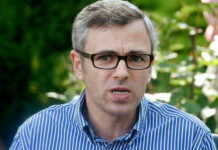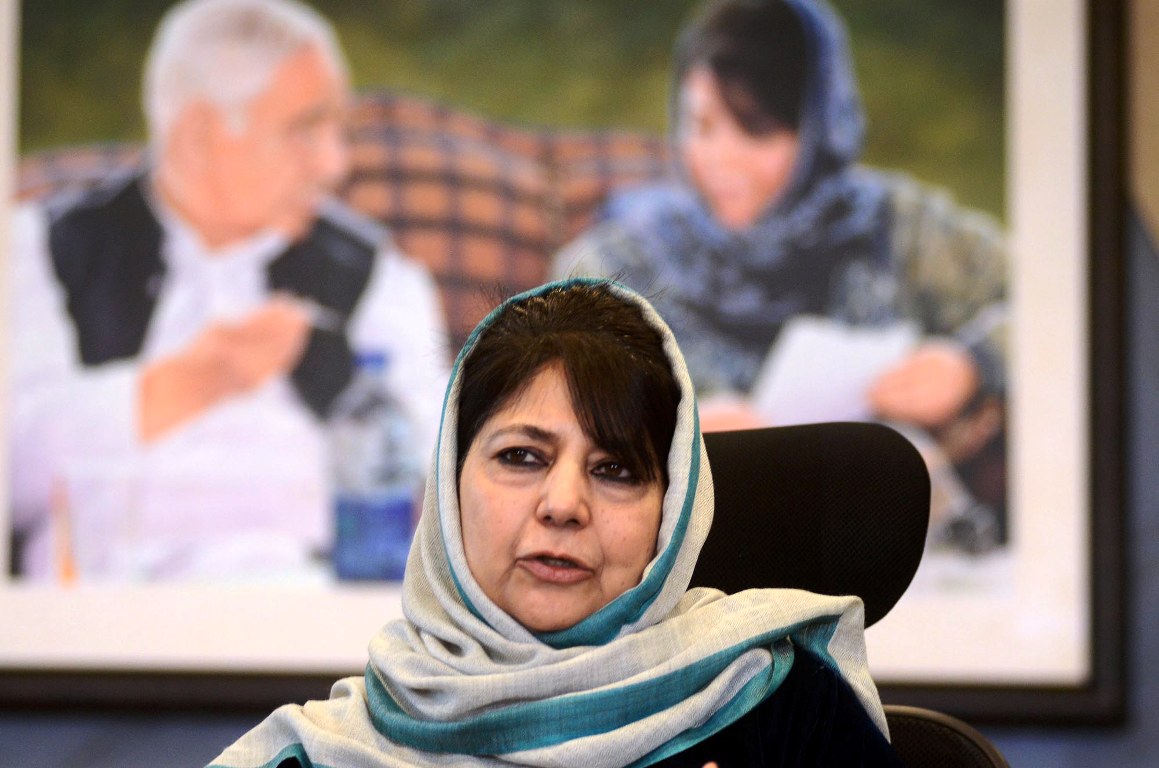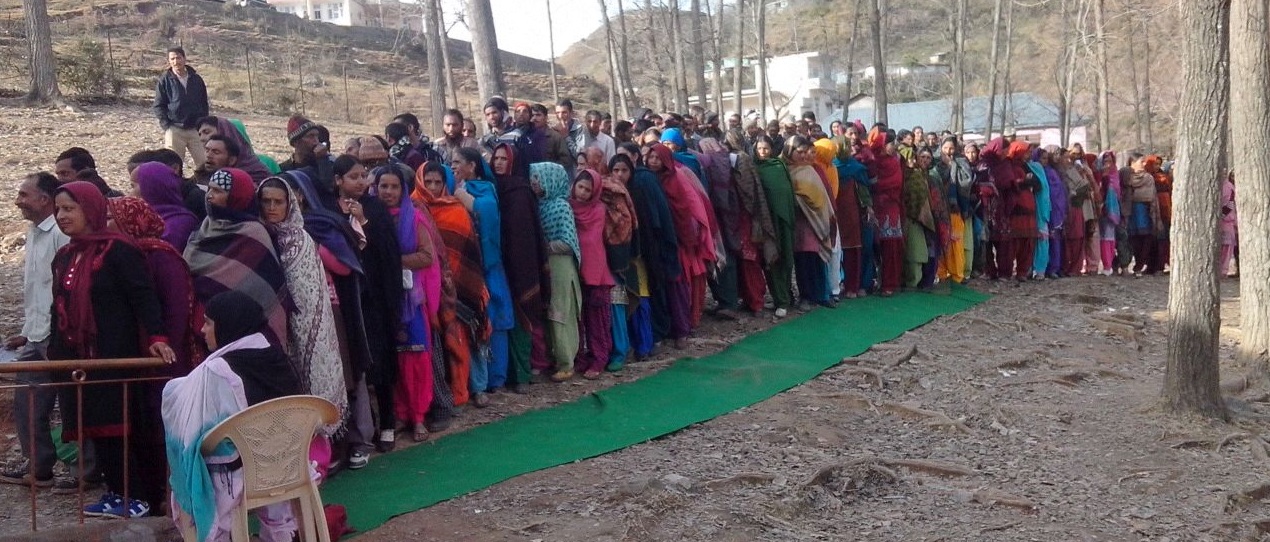KL NEWS NETWORK
SRINAGAR
To sensitize the reporters about gender reporting, a two-day workshop ‘Media and Gender Reporting’ started at University of Kashmir on Monday.
The workshop is being organized by University’s The Media Education Research Centre (MERC) with support from United Nation’s funded Population First, a Mumbai based NGO.
Welcoming the guests and participants, Coordinator MERC, Faruq Masudi endeavoured to make the workshop participative and result oriented.
Renowned Journalist, Naseer Ganai who covers Kashmir for The India Today Group emphasised on how local media lacked in reporting issues concerning women folk since there was a dearth of female journalists in the profession.
“There has been lesser work done on projection of woman psychology, her thoughts, and her aspirations in Kashmir. My journalism colleagues and editors in New Delhi ask me why they do not see stories that talk about what women want in Kashmir?” observed Ganai.
Ganai also spoke about the lack of basic facilities for female journalists in the valley.
“You would hardly come across a newspaper office here which has separate washrooms or workspaces for women, how do you expect a female journalist to work on a challenging beat when she is not sure about a separate cab drop to her home late in the evening?” added Ganai.
However, Ganai, added, “of late, the reputed news organizations started formally recruiting a full-fledged team of reporters which included females as well viz Greater Kashmir and Kashmir Life.”
Dean Academic Affairs, Prof M A Wani, who delivered presidential address spoke about how women have been treated in Kashmir since ages. “We have been reserved,” he said, “there are tales to narrate how women folk have remained stuck to hearth.”
Wani detailed how female folk has been “underpaid” in Kashmir media. “Not many females are working in Kashmir media and hence the responsibility lies on state itself,” he said. “State has to support so that females choose media as a career in Kashmir.”
Wani said, “only politics and violence dominate our newspaper headlines and the issues concerning us have got undermined.”
The Hindu’s Srinagar bureau chief, Peerzada Ashiq, talked as how “Kashmir media lacks Lal Ded”.
Director Population First, Dr A L Sharda, emphasised on the positive change local and New Delhi media houses can bring by covering women-centric issues.
“I have full faith that all of you present here will see you regular stories from all the perspectives, that you can give bring in a fresher perspective that encapsulates all the viewpoints,” Dr Sharda said while addressing the participating journalists.
On the occasion, District Magistrate Srinagar, Dr Haneef Balkhi said that gender bias and exploitation was a human defect.
“Nature has amply offered roles to both the genders however any exploitation as such happens only when humans deviate from the basic laws and put forward their own defective ideas,” he said.
He also spoke about government initiatives like ‘Laadli Beti’ and other schemes.
On the occasion, Deputy Superintendent of Police J&K Police, Nighat Aman, said that women are strong enough to brace various roles in the society and rub shoulders with men.
“I was one of the first female officers in J&K Police back in 90s, the job has made me stronger and given a position of advantage and acceptance,” Aman said.
Zehru Un Nissa, senior Correspondent with Greater Kashmir, who covers health, said, “the administration and legal system in Kashmir have not been able to redress the exploitation of women.” A similar point of view was shared by Toyeba Pandit, a former Hindustan Times reporter.
(The reportage of the workshop has been contributed by a MERC student with minor additions.)


